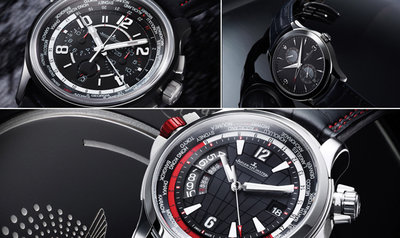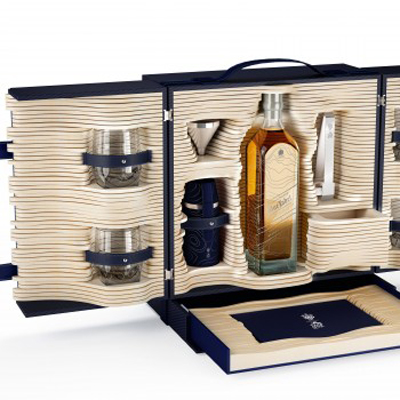Collaborations can sometimes be risky for luxury brands, and half of affluent shoppers say that the biggest risk for a luxury partnership is the potential damage to the brand’s image or reputation, according to the latest survey from the Luxury Institute.
Overall the study found that most affluent shoppers enjoy brand partnerships, even with the risk. However, luxury marketers should pair up with brands that have the same goals and mindset when seeking partnerships.
“Nearly half of wealthy consumers think that long-term collaborations are most effective for luxury brands,” said Meera Raja, director at the Luxury Institute, New York.
“Luxury brands should utilize partnerships not just to showcase their strengths, but also to create unique and innovative experience for consumers,” she said.
Luxury Institute surveyed consumers with a household income of at least $150,000 about the appeal and impact of brand partnerships.
Pairing up
The survey found that in addition to partnerships being the biggest risk for a brand, affluent consumers also thought that partnerships could be beneficial if done correctly.
Affluent consumers ranked joint advertising, products, events and sponsorships as the most effective types of brand collaborations.

Aston Martin partnered with Jaeger-LeCoultre to create a watch collection
Also, consumers reported that partnerships with hotels, travel brands, fashion labels and airlines are the most fruitful.
Women are more likely to be interested in fashion, jewelry and beauty partnerships, while men seem to enjoy automotive partnerships more.
Shoppers who are older than 50 are interested in airline and cruise partnerships.
Affluent shoppers also said that they would like to see luxury collaborations between a number of brands including: Michael Kors and Apple, Chanel and Air France, and Lexus and The Ritz-Carlton.
Furthermore, affluent shoppers are not turned off by luxury brands partnering with mainstream brands. Those surveyed said they would like to see Starwood Hotels and Resorts and Bed Bath & Beyond, Gucci and Coca-Cola, and others.

Johnnie Walker and Alfred Dunhill whiskey set
On the same page
Many luxury brands have engaged in partnerships with other luxury brands with similar statuses as to not hurt their brands.
For instance, spirits brand Johnnie Walker eyed affluent men through a partnership with Alfred Dunhill to create a limited-edition gift set that likely extended the reach of both brands.
The Johnnie Walker Blue Label limited edition collection by Alfred Dunhill is a collection of British-inspired gifts in addition to a designer bottle. The partnership helped both brands solidify their position in the luxury industry and as well as their reputation as men’s lifestyle brands (see story).
Additionally, high-end smartphone manufacturer Vertu continues its six-year partnership with Italian automaker Ferrari with the release of a limited-edition Android smartphone inspired by the automaker’s design features.
The limited-edition Vertu Ti Ferrari smartphone is the latest in Vertu’s smartphone collaboration with Ferrari. By designing the smartphone to resemble the vehicle, the phone will likely appeal to a wider group of consumers (see story).
Luxury brands can gain additional exposure and attract new customers through partnerships with other luxury marketers.
“There are still many benefits of partnerships, but luxury brands must really focus on relevant opportunities with companies that share the same values,” Ms. Raja said.
Final take
Erin Shea, editorial assistant on Luxury Daily, New York
{"ct":"TnC6KPmYNL8EBBhEa8RU4NvP7Un5Ie+vJUFEqy9v9KyCQIfGg\/\/v3+o1mwc00NEI+mv9mJmmOLacY1hDAqxcdU5dx9\/oebyMZe3+GJRJ3GQ2NRPGcgr09jB+zjmElZsQI+2HPRrHu\/IRM9sjp\/+XDXzbF4RjFNj7v590ZzNd5VoT1wlThFB\/KOysCyMA89lD480Ko7iQuWQwkaDNi6\/+sW5PYIbbqQMhDeXw5kp3h35uAHtVaBxpqub4hAdkg\/kYbGciAEQNyB7MQvh9t4Gws\/OpuyMn5\/+GBfLOHEYNes7epHGwplhHoIcAxekMLc6VCKqqMUw2IrMKBCeNaTp4FVkmG4tJ+s\/VDUExy\/70tmmZ7V0NafX7yPbiiaQMwWGPEkXglkqABW0vWcyLHXy0o0RuNd18ZgQhdPw+aqxhGfORFeiX+icvxxUjkkx2etv0869oG7100kA3IChFN3fYTfn1mPyn81vBUshc9HtJ0cjjzBx6LivQnLEDxVn2sBWHmbBupz0SNGXYDNClqbJt9SlNxJhDtqtBS+N3n2HovA7BNCxs42t3wONwCijChVJMoivAmFTQGHRi8zOPjIWA82mh46yNIH\/2CzGeW3kVwF6UEQPOaIqOuQDaW1jsSz2suLxz9\/JALUPgGrbQjzL1GpJfhCCO3VixO241rmtTy\/jEZ8VdYy8vTITfTxZiSnv9mLemO3GY3Qz1UaRtDN82thIaTGcgtjAsVbGSQtlqZZt30Q21cP9oXzeKHSZpPlgW958UFxIDspPkmvphsHntdnoXj2cjjhc+WuM8sHo1pRL5DXgQBovThR7TJXF2EXbMiyLrlvxmkRPHwYw5YbqWrus9TkhrLYtsxc2LK9LcFQcUirbg3lsaKkvBocyDlu+HHUQxmk+2g++4PmNYGn4qtGgNhEr7gbi0Ky4Ex0Zt8kl8ecRWVK+2QZAYt+U0GIm3VhWSfSJ7Za46YVq8j56KUcMFV\/Rjfc\/8dJyJ16ng+AJ\/Uh64H0l25+AyV8VEm\/lv0Jcj7oybACsD9wVr7CeAvAnlAux7LmPAnZv31wuSoTXVgweXoQ3UPySratNtZgZ7E67QCf52CBG7cyhGVGHyKYG\/uDIObbbnpbcAp+k8KohKwb4vK3YE9I5dQfu412sCJG2ASbKsgFyntudhUK2QcxtsCW\/tw1QlDNU2VlpQSdeJFNkoko4IoHJbUEYd0wS6PoPSI9sY7o4H1O24U0NbTAK2RkEIBjsxVrK6uwKp0dPEIcWh80B5p3DehNEh8qDO1tch5rcKfGpvzP+n+g58txHUqjIqZlx5\/YqyeGxgHwtqq9frSKqHFbjVQBvI8VrD8rBILLAYkGsn81NYbBktz6qa97ZdqnPlX3B9\/pRY2Pixps1N2ag5GRuyhxol9jsTPDPCZdi0PvJi2XCSKD3P4yoFSs5GIgDyShZ\/t1ch1fVqjO93mXPCvHRS208IyxQxT0vwI3d122uROzjWQRWxZgImdcHjgygAmJxdM0cNbyMTJ31qde9vRHDu2fXw+xkv+rRjgZh66XYHzxEfT5v93Jx\/iP5f\/DImzTLJCUnWjI3ePrC3VwNo1DHcr\/RnQ3kZtWF7dypQyXGkDWkewc\/D7GM2xZYA3boTSRdgNg1E5fAeYrlatWDf6y7MCE\/UJx0CkIKUtMbwkItrGEyoIlP22Y17l8J7BgLihYZ8ceLbTISjBq56h5MZxXKerAYxmJG75n3sKd5gVn5RO68P9moVgIWcVHFf6NsBAUj6alkn840ICwie9lRSaWh1yl7P5RhYzmg98RpKuVnYxzKauMrX+IvzTnn0aQbIBtZvEx\/A77Z7vYu6\/fQ+UCxlQrvnRi0HKfa\/Aky0pLiiNDYIKLgUo5KuWBI6N42hvQnmxDgbIdgcxU3QBGiOOR\/L14kCkK5yfqNmGDK0oh9W0JHVKZIM+o1XBNLzAJ6\/ABKuP81GIZQNsgUAsNMIx+m5VwEKmSH5XVa0ywXjn3KO6ULDHJ4kAoS6wHEtxlCGaBNmR\/4e7T\/n51SgN06lCVsGhBtftkubIQUxz6zpb1Z\/ux4Vn37DTwdQG8LWyYYoCEWod0qS\/IvFg4JtVbHpUbzDQkPB42R77U4czaQxC50Y6YyE4BR+E1\/0tV+\/WpvpJkeQ82QRat25E7AwsaFxjJ3DIGZvkrN+ZU9yhL+R038VGciqHvG4CDEHybsnT6f7rX2WhFR\/BjqkAig6AxHY+cNHEgko+MV771fOEDMgdqs7GrLwozCtTqAiHQKmIe8B2vExXNqPkFCflgOsqWK3Gy1us3mfCU3CWVh3SPs4KkL4UvJL81Jz8JW4eHi4wupdhMD91gKSisTLAx+XbHm8wfqTA4vJVAOgjyskn4FHPXrdpEQWJ0AzvjiDErtFTZ0hQuIb2BlKdwktzB4Pm8sXZdWwjcuovMh4D0XMy1IDCpw83xwGwZiaSvnp6e+GnBJy91kYaw5iJ28eNp8DDh1cSTCPapbXJNDF61aKSJUMmSwPIwvvm8yobNJHonIHB2FvQIWzBHXXb5H1tpMhFJmJaA9czKyb0en\/TPivUCvH3ka7EaUEqGW9HTGlfL4swcKOkYVzhJSlhxgvCWqcMXWogPkbgkTTy2KEHxmydoS159mNokSmclCCzEQZnGh22J3xuZQDj+Wd\/wR9NGCk3UsWQ3OiwQk8oo5Wy\/O0miMUnlaAJYMmwkBam9FWiSZaptJQPkw2kEjITuS+V59hvZIrfKqy7g5QtGqkcKOLCoFzlddAsTz5tD38snDvqaen+\/H8pgkXif0DLOFv21+H4cPCJfOwYdpxgvAlSQvrgVY\/NfcdgRZMX2rxOAywYkgIY+ZGyJ1HR4XbFkYkzhyvUq7jnnFHzTVNTKpMtnx88brpf9UApDqespAxrSyfJxqLUhRt5AUN4\/wPHiCtHKKjtY6te1ceviG+rRw9fFJydBfrz5ekKt3gEPux1QrIVdRey7BKmYry6r0Tx9xw3+X2He2eVVY22T3Z9hemx5TsxNF8mpMCELcF60d2fYhoQvnQF4I7pHKBlfBDsExhKzH4VvDW8jaW6gw9WmBjW8Y+Q+uCz4arwDiXH\/f\/08Nmsq8O98bRDYw6Q3CMdtGW50WyzLuQCXXLxU5BGn3aXRFaUrgVutbq2spDAvO8eIlE0MGIW6jCmyVueFHUXZas2MiePKeQ8Bx39Lhhv12vbVn7etzdyTek5QdwgLXDvT0aTNn8dqW+Bo+WtDRctybH4wLB8APN1bY2zNH8PSMrmK83ow0aENaetX38+QsCxMFVfTdSwtznJC7l5Vhjikn1qQJlEWqMy6o48v0Pzk+7yOh8VtDr6UEXT32NMv\/eUpqGC9WtYKe\/bmfQdLFGP6iGbP7B5CEhXu3eCsmMxn5s2JW4TmyEBPGH3ZctOLmzcXYiMr2grUCo1KbnujwJbWN0vdihSMiqJwKX8j3vSqLqBqqkqd\/7NrtdSxjYthAoZ+iGXchKpBfuq8s+FUQAJECxACnY4FGuUzj4Nttd0mzwOczYV0Hqz0MS80hDAmEdxUqwlsPf4r+TfnsyFlNcpp6j90f1FO7inzbpfYGkMvTBZhaDcRYw42iDHLoYynf1z2rW55\/uka6ihvVjcfkP6uSc23rBNYeVZ6q+I8fLtFHK1m2WFTrTBBPKiYfpjFb7MJvkB7aEScN6rJGfiMhfhoDf+pIYbADHwBNWx8lkexT2j4teFFXCfXwCLlZtSCSDRtdouYuCTPhQ49dLEIEjrq9jftRDm9mrlihhtHQaHsN2fWCAt+NJVOO2+s4DJCpYidnPHBkhMMXSOG1BijJDBfK+5wd6IgGIyF7\/M5FM\/cBLHZagTBrcoYgWS21CqYrZnGXjjrueqN\/WYJOpj0r75+07tC17CcG04a\/b7qD4jshdkltTGQgiJdPVKqqJXCZN\/AakpjU2lpHHUB7wE3IRmwNDW8scS2KX9h22WRP1JhidZoo1ekl74ONxHTsxDsuxMdCr3gWDHzLrg5JLoe4vEzuSWkDinGwmZEn3CJLReGDZbibFSU8rVaH1RzUbT5nlCoAZGAOXCFFwIwIqx96PZg5z8Q7L1FS3E5xloqUNoOMpbjALEPXv6rFSWg3dABBUWW655AbQBcz4F0iOm2SsBWvvWsxT\/QU1T2j\/8Pt6Pc05J9fR\/YUtaTcVnhdDom09xVjaECrAShexZK8y0H6etV10qyvu0Jy7fojEEWjrqe02+nt1uv8wUbTID0U\/jFSwPhakWRiYoXxcnAVZOKAkoF0cNraRydxFdxCP0VKSjxTTWCnngCLS+RQ9\/z2N15ah4tzOrbiZG3mCBTQM6+nDslqbxX\/glGQybpITJYe49LoG4HB5ldYoLbjtX8kPEmMlVIvyxX+UfIMJMbK9lM7C2W2tnodOO3bUefyVSSys8mddlZ+p9qtuvtHucX5aLVQoRvGMbIofsb5J2z0b2EinFofMKVmfEU1ggASqZ8S+2CNaeipHnA7cOr4qzUH8XQsSPATHSGBPGXBuBHsGzP3Q6UWDsJHlHJ6XC7B2WAuGUuFKKhCFqmwZR6anvp9Y2OILLhRvjf9hb552fPplzXumPP9jlX5jnYqMZ7yZ\/stvXhbANEevEOYSxcajpkWPqQSnx3MV3lWqJOpp1h4WNVL5tjoO83LVnnr+ju94Gtbog2wbH+YT6GPNHjBdcF\/tJKf22Cwtv+6UqCFrHIYXmb36UPh3zuNS\/QkQs2idw54KNUFgeuKek\/UNDaiFHHaS9UCMdi4uuC+a0ZBQdm1eOwuI39ImusfzFRUi0nWk2PtOiwSZsYRozjGCbGfgDd6KBRs4TPcx396bRQuWbFpjhtfAHa7j1veV1d+jAlO5y5LTpoAmqvkKrKEl4YO7VpZ5KcsesDj\/5qutZiyGd1L9ml1f11WJyx0bsW9YSng6a1MUY2\/9z5sMJdLGJ2hPfF7PraFqwdhfHbCIW0R0bykU0hhWHbsof2tvcHTkN6kozjGzYwKkDfoHo2DdtutPZM\/wXRo0SaRmGRQHfsokd2TVCERqUSW00ifotaArBTB3ZZkH\/81IhJaDG5o8LJRmXcCivesioKQh6QloBIdDDiabC5sNFSflPDIdl2TQc68T0q8bH+goAmWvygqkg+tCRHK6l9uEbpqrR\/vBaindUL68v+mX2nFYrxSC3x2hZAc\/Q4quBazCz0qh1VmlEL808tKg3Rf+M65G1RyhaLQ5\/aMEvs76N6dRqiU4OIpeD9\/6DvPyg+bRldcA2rg1pSKW7BO93kOnib0eR9a1CtHljE2PiVr25za4bw7SE\/6WHl3uetasts2CQONcc40fSyz3owM2xuGv3p4ksHVqsSwh3NmthQEmNYvN3WWv\/EPDAmjvuOxgnruNMWLhd7XL3qXTJ5C4Jy3CwdOUNdkaINXd8iKZCi6XFdEhFuakhjSU4mjQIbVKKmg6Pp39Ho9pbQ5m2bSeKRdaJ2sUkiFtGPBtRAQcFha3x3CUlsMkUEiH3Db9qg67\/46zibbk8jLcTM\/A2FIB3pajHgmptsJggmg1h2C7Z7scxx0Jj3Hhn20L6Gn+iCoGjdfvMbLyPiYb+yi6xz7XnYLahe\/y3fnOVwj35Ouv\/hVcOFEl5QJskwZTyLkqPus8NLMCouxBCptWyuxW+k+yXzOTb0jIOIxMfwEok+m\/5DTwIrV2cOXZoMPgDzi4UjEsxuYe9m+oR2y+PGn6AKv5rzuV1vOKS4faSVfY8KbEZq58Z3v1FVX+LfGQ9vHqetCHxDmsh94YiWQ\/EcJd\/mLWUQa+MoXbZibkXHGrOAU+Fx0klbNieeVKknRztQvghD9NTqSlVbLO6SiLq24A+Hhs7ZGFbegqpPdJOMVbdQcUBuxwoFng\/eSibNkRktYLzvSSkYNwA6MOVKtd+kbSFYwfi+YFb0udqTnaxb+Xtlv37Z9xVKITcbhZP2\/fYV4PZvGSnLVy8bao04zdp4YbICiBr+C6jgwXjAoDdBCFnjx4eSHdEpPDihxmIoP8h\/1QdMHU256plsHAdqFR4hJkaFeiHGk6N652RYSforo5FhP22AKCay4MxmSN0uy3bGX2Ht0aPR9foN+LdiGUYKHSbfEp\/cmnlBAcOfaLAZigIdka9FnfcULVQ\/VFIFClUBZ0N5kVG0QmiBnHSxoccx7EBCY6+0WIzEnU6UEXBJ6JfrzyZmQmtPPyDo8hevtV2egG6nMOGQAQZnmzf6kqKm7a5aweYcaviL8\/xJYV613Qq6xqFFA8fAOU0QAjSl90U7E\/Suxyn+nOEVsYvzAVa1ObfHoQLuSF7SL4YYDbHTVc7NhLejt4wuOJiL++SHwUJqr0WQ72LdghHYieD3babRVb10rmVNTA+abAwzjMsCEfjBHnq3\/PIoda3JDILpxqxTPWGHtKx4MizMkkpP6NAG0+2Wk9zHDPJAnw2KC0rea7ItVmfzoXknfSIHCoLuwED9U\/inC5bpbKlCzjXvLbivAtTZvvPUbbhCSvqt2Rt0El1Wvc6YeITQsaSHB8UdxUGWm9LzgPKzcc1Jvcvx+6KWKS+YMu9ByKwaQGFnMcimGhinky+U0SRZh2GTsVIyQZDlNuT\/s+BGfAGAsnRGt32gRW5kCUw1+3kSVZZLXlQpFD32KZkFQjM0rfWgdGx0xYpJkHcka0kapoCSleiLIbQ\/ZRqPwDlr2roZJe3vIazb7U7xWlyfLOXVNCoT5YZUfhVHQU3d9IQWIPNMlanZEkX2l1v\/ePUZW92cvIhLeFozrSUcuExRLIZ8uzSY+CXB5cXDVsMC9xRldufELHlmJeEXUPOgqeJ\/XaDMz6Q+zO\/A8A028QJsiZfimI+y0JDnjQ9L7uA0EQYhHEfHJeWoCGLG3uqeTAnaLjg078+BJ6A2N5HSd4k7dIZsQNDzAnwEpRB4rDiK\/WX1siPPb4uzAm7xkIBmh6rXxvSA==","iv":"8f9d07a585ade8dcd49110909d977ca7","s":"16b7de2101bd4088"}
